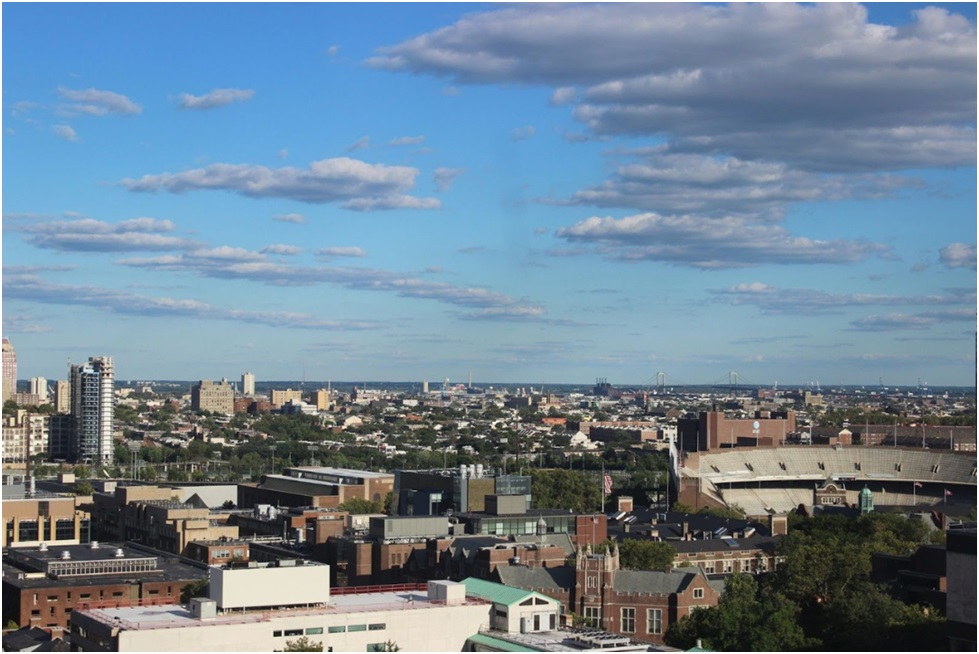
Key Takeaways
- Affordable Urban Living: Pittsburgh offers a lower cost of living than many other major U.S. cities, providing an affordable urban lifestyle with competitive housing prices and reduced living expenses.
- Thriving Job Market: The city's diverse and growing job market, especially in sectors like technology, healthcare, and education, positions it as an attractive hub for career opportunities and innovation.
- Vibrant Culture And Lifestyle: With a rich cultural scene, high quality of life, and varied climate, Pittsburgh presents a vibrant and dynamic living experience, appealing to individuals seeking both recreational and professional enrichment.
Is Pittsburgh A Good Place To Live? An In-Depth Look
HomeRiver Group's commitment to exceptional service and local expertise ensures you receive a nuanced and comprehensive analysis. Your property and living experience are our priorities, guiding this exploration of whether Pittsburgh is a good place to live for renters and buyers alike.
When considering relocation or investing in real estate, the question of livability invariably comes to the forefront. "Is Pittsburgh a good place to live?" is a query that encapsulates a wide array of factors, each critical to making an informed decision about calling the Steel City home. Pittsburgh's resurgence as a hub for technology, education, healthcare, and finance, coupled with its rich cultural heritage and vibrant communities, positions it uniquely among American cities.
In this article, we will explore the factors that make Pittsburgh an attractive place to live, including its affordable cost of living, job opportunities, vibrant culture, and diverse neighborhoods.
Cost Of Living In Pittsburgh
Determining whether Pittsburgh is a good place to live often revolves significantly around the cost of living in the area.
Affordable Urban Living
Pittsburgh presents a unique financial landscape that is attractive to many. Compared to other major cities across the United States, Pittsburgh offers a more affordable living scenario without sacrificing the amenities and lifestyle one would expect from urban living. According to recent indexes, Pittsburgh's overall cost of living sits below the national average.
Housing Costs: A Buyer’s And Renter’s Market
Housing, a primary concern for many, is notably lower in Pittsburgh. The median home cost is substantially less than the national average, providing an opportune market for buyers. Renters, too, will find Pittsburgh appealing, with rental prices significantly below those found in comparably sized metropolitan areas. This affordability extends to homeownership costs, including property taxes and utility costs, which are similarly reasonable.
Other Living Expenses
Pittsburgh's affordability does not end with housing. The city boasts a lower-than-average cost of groceries, healthcare, and transportation. Public transportation is available and efficient, offering a cost-effective alternative to commuting by personal vehicle. Additionally, the city's walkability, especially in its more densely populated neighborhoods, can reduce transportation expenses.
Balancing Salaries And Living Costs
While Pittsburgh’s cost of living is generally lower, salaries can be slightly lower than national averages in certain industries. However, the reduced living costs can balance this out, allowing for a comfortable lifestyle.
The Housing Market And Real Estate Trends In Pittsburgh
Pittsburgh's housing market emerges as a focal point for potential buyers and renters, revealing trends that underscore its appeal as a desirable place to live.
Affordability And Steady Growth
Pittsburgh, marked by its resilience and adaptability, presents a housing market characterized by a unique blend of affordability and growth. Median home prices in Pittsburgh remain competitive compared to national averages, attracting first-time buyers and investors looking for valuable opportunities. This affordability is coupled with a steady appreciation in home values, propelled by a rejuvenating economy and an influx of tech and healthcare industries buoying the local job market.
Rental Market Trends: Rising Demand
Pittsburgh's rental markets also reflect a pattern of steady growth. The demand for rental properties has surged, driven by an increasing number of students, young professionals, and families drawn to the city's amenities, culture, and employment opportunities. Rental rates have consistently upturned, yet they remain attractive to those looking to make Pittsburgh their home.
Diverse Housing Options
Pittsburgh's real estate market is also marked by diversification. From modern condominiums in the Downtown area to charming single-family homes in the quieter, tree-lined neighborhoods, Pittsburgh caters to a wide range of preferences and lifestyles. This diversity enhances the city’s vibrancy and ensures a broad spectrum of housing options, making it easier for individuals and families to find their perfect home.
Development And Revitalization Initiatives
Development initiatives and neighborhood revitalization efforts underscore the city’s commitment to growth and improvement, further stimulating the real estate market. Such projects are poised to enhance the quality of life for residents and spur continued interest in Pittsburgh's housing market, promising sustained growth and investment potential in the coming years.
Employment Opportunities And The Pittsburgh Job Market
Pittsburgh's evolving job market is an integral part of what makes this city an appealing destination for renters and buyers alike. Historically known for its steel industry, today's Pittsburgh has diversified into a hub of technology, healthcare, education, and financial services.
Tech Boom
The presence of leading technology companies, including Google, Apple, and Uber, has earned Pittsburgh the moniker "Silicon Valley of the East." This tech boom contributes to abundant job opportunities in the sector and fosters a culture of innovation and entrepreneurship that permeates the city. For those looking to advance or start a tech career, Pittsburgh offers fertile ground with the added benefits of a more affordable cost of living compared to other tech-centric cities.
Education And Research Opportunities
Pittsburgh's esteemed universities, such as Carnegie Mellon University and the University of Pittsburgh, are top employers and contribute to the city's vibrant research and development scene. These institutions help attract a skilled workforce and drive innovation in medical research, robotics, and engineering, among other fields.
Healthcare Sector
The healthcare sector is another cornerstone of Pittsburgh's economy, bolstered by UPMC (University of Pittsburgh Medical Center), one of the largest and most respected health systems in the United States. Employment opportunities in healthcare are plentiful and varied, ranging from clinical roles to administrative and support positions.
Financial Services And Stability
Financial services also play a vital role in Pittsburgh's job market. Major employers such as PNC Financial Services and BNY Mellon are headquartered in the city. These institutions contribute to a stable job market and opportunities for finance, banking, and related professionals.
A Dynamic And Growing Job Market
The city's employment landscape offers opportunities across various industries, making it an attractive option for career-minded individuals and families. As Pittsburgh grows and diversifies, its job market remains a compelling reason for renters and buyers to make their homes in this resilient and vibrant city.
Weather Patterns And Seasonal Considerations In Pittsburgh
Pittsburgh's varied climate caters to those who appreciate the changing seasons—from warm, humid summers to cold, snowy winters. This diversity in weather allows residents to enjoy various outdoor activities throughout the year.
- Spring: Pittsburgh's spring sees gradually increasing temperatures, with a mix of rain and sunshine. It's ideal for enjoying blooming flowers and exploring the city’s parks.
- Summer: Summers are warm and humid, with temperatures reaching the mid-80s Fahrenheit (29-30°C). This season is packed with outdoor events, concerts, and festivals. Heat management in homes and rental properties becomes essential, and HomeRiver Group ensures cooling systems are maintained for comfortable living.
- Fall: It’s a popular season for exploring historic neighborhoods, outdoor cafes, and nearby pumpkin patches. The real estate market is often less competitive, making it a great time to find a new home.
- Winter: Pittsburgh's winters are cold, often dropping below freezing. The city averages 28 inches of snow annually, making it ideal for snow lovers. HomeRiver Group ensures properties are well-maintained with efficient heating and snow removal services to keep homes warm and accessible.
Pittsburgh Versus Other Major Cities: A Comparative Overview
When considering whether Pittsburgh is a good place to live, comparing it to other major cities across the United States is beneficial. This comparative overview will consider the cost of living, quality of life, employment opportunities, and cultural amenities, providing a comprehensive picture for potential renters and buyers.
Cost Of Living
Pittsburgh offers significantly lower living costs than New York, San Francisco, and Chicago. Housing costs, in particular, are remarkably affordable, allowing residents to enjoy a comfortable lifestyle without the financial strain often associated with larger urban areas.
Employment Opportunities
Pittsburgh boasts a diverse and growing job market, spearheaded by healthcare, education, technology, and finance sectors. This diversification provides a stable employment landscape compared to cities heavily reliant on a single industry. Pittsburgh's technology and health services innovation positions it as a competitive city for job seekers, rivaling San Francisco's tech hub and Houston's energy sector.
Quality Of Life
Pittsburgh's quality of life is high, with the city frequently ranking well for safety, green spaces, and cultural offerings. The city has numerous parks, rivers, and bike trails, promoting an active and outdoor lifestyle. Moreover, its rich cultural scene, with museums, theaters, and a vibrant food scene, rivals that of more recognized cultural hubs such as Los Angeles or Miami.
Cultural Amenities
Pittsburgh does not lack cultural and recreational amenities. With a strong sports culture, world-class museums like the Carnegie Museums, and a dynamic food scene, the city holds its own against more populous cities. Such amenities enhance the living experience, making Pittsburgh a place to thrive and enjoy.
Final Thoughts
In assessing whether Pittsburgh is a good place to live, it's essential to examine the city through various lenses, including economic opportunities, quality of life, community, and the real estate market. Pittsburgh has a rich cultural diversity, a robust job market, especially in the healthcare, education, and technology sectors, and a cost of living attractive to renters and buyers. The city's neighborhoods offer various choices to suit different preferences, from vibrant urban communities to quieter, family-friendly suburban areas.
For those considering Pittsburgh as their new home, integrating HomeRiver Group's exceptional service with local expertise ensures your property needs are prioritized and managed with the highest professionalism and dedication. Our unique blend of local market knowledge and comprehensive property management services makes us the preferred partner for navigating Pittsburgh's property market.
Read also:
- The Ultimate Guide To Property Management In Pittsburgh
- Real Estate Asset Management Best Practices That Put Money in Your Pocket
- How a Tenant Portal Enhances the Renting Experience
Frequently Asked Questions About Is Pittsburgh A Good Place To Live
What is the cost of living in Pittsburgh?
Pittsburgh's cost of living is affordable compared to other major U.S. cities. Housing prices for renters and buyers are typically below the national average. However, residents should also consider utilities, groceries, and transportation costs, which align with or are slightly below national averages.
How is the job market in Pittsburgh?
Pittsburgh's job market has diversified from its steel industry roots to healthcare, education, technology, and finance. With several Fortune 500 companies and a growing tech sector, the city offers attractive job opportunities across various fields.
What are the best neighborhoods in Pittsburgh for families?
Family-friendly neighborhoods in Pittsburgh include Squirrel Hill, known for excellent public schools and community life, and Mt. Lebanon, which offers a suburban feel with parks and a strong sense of community. Both areas provide comfortable living environments for families.
Is Pittsburgh a good place for young professionals?
Pittsburgh is ideal for young professionals due to its reasonable living cost and growing tech and healthcare job market. Lively neighborhoods like Lawrenceville and the Strip District offer a vibrant social scene with plenty of restaurants, bars, and cultural experiences.
Are there good schools in Pittsburgh?
Pittsburgh has several highly rated public and private schools, reflecting a strong educational commitment. The city also offers excellent higher education opportunities, including the University of Pittsburgh and Carnegie Mellon University.
How is the public transportation in Pittsburgh?
Pittsburgh's public transportation, mainly run by the Port Authority of Allegheny County, includes buses and a light rail system called the "T." While it effectively serves key city areas, having a car is often recommended for better convenience and access to the suburbs.










